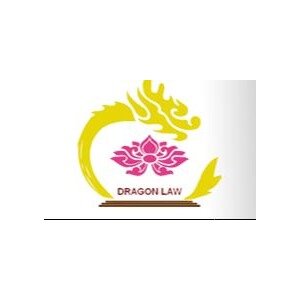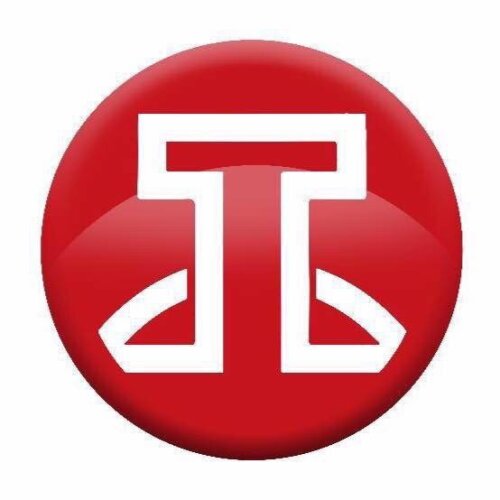Best Private Equity Lawyers in Haiphong
Share your needs with us, get contacted by law firms.
Free. Takes 2 min.
List of the best lawyers in Haiphong, Vietnam
About Private Equity Law in Haiphong, Vietnam
Private equity (PE) refers to investment funds, typically organized as limited partnerships, that buy and restructure companies that are not publicly traded. In Haiphong, Vietnam's third-largest city and an important industrial and economic hub, private equity plays a crucial role in the growth and expansion of local businesses, particularly in manufacturing, logistics, real estate, and emerging sectors. Legal frameworks in Haiphong, influenced by both Vietnamese national law and local regulations, set the groundwork for private equity transactions, foreign investment, mergers and acquisitions, due diligence, and compliance.
Why You May Need a Lawyer
Engaging in private equity transactions in Haiphong often involves complex legal and regulatory considerations. Here are some common situations where legal assistance can be vital:
- Structuring and negotiating private equity investments or buyouts
- Conducting due diligence on Haiphong-based companies
- Drafting and reviewing investment agreements, shareholder agreements, and exit strategies
- Navigating foreign ownership restrictions and capital flows
- Resolving disputes between investors and local partners
- Ensuring compliance with Vietnamese corporate, tax, and labor laws
- Assisting with licensing, permits, and regulatory filings in Haiphong
A lawyer with expertise in private equity law provides strategic legal advice, helps manage risks, and protects your interests throughout the investment lifecycle.
Local Laws Overview
Private equity activities in Haiphong are governed primarily by the laws of Vietnam. Key legal aspects include:
- Investment Law: The Law on Investment and its guiding decrees regulate domestic and foreign investment, including sector-specific requirements and incentives available in Haiphong's industrial zones.
- Enterprise Law: Governs the establishment, management, and restructuring of companies in Vietnam, including share transfers and changes in equity structure.
- Mergers and Acquisitions: M&A transactions must comply with competition, antitrust, and disclosure requirements. Foreign investors may face additional restrictions, especially in sensitive sectors.
- Foreign Ownership Rules: The government caps foreign ownership in certain industries, while some sectors are fully open or require joint ventures with local partners in Haiphong.
- Taxation: Private equity investments are subject to various taxes, including corporate income tax, capital gains tax, and VAT. Tax incentives may be available in prioritized sectors or zones.
- Employment and Labor: Employment transition and labor rights must be considered during restructurings or acquisitions.
- Regulatory Approvals: Certain transactions require approval from the Haiphong Department of Planning and Investment or other state bodies, depending on deal size and sector.
Frequently Asked Questions
What is private equity and how is it regulated in Haiphong?
Private equity involves investing in privately held companies, often to restructure and grow them. In Haiphong, such investments are regulated under national Vietnamese laws, mainly the Law on Investment and the Law on Enterprises, along with local governmental provisions.
Can foreign investors participate in private equity in Haiphong?
Yes, foreign investors can invest in Haiphong-based companies, but they may be subject to ownership caps in sensitive sectors and additional regulatory scrutiny under Vietnamese law.
What due diligence is required before investing in a Haiphong company?
Standard due diligence covers corporate records, financial statements, tax compliance, licenses, contracts, liabilities, intellectual property, and labor obligations. Legal counsel can identify risks specific to the local context.
What are the common legal structures used for private equity deals in Haiphong?
Private equity deals typically use joint-stock companies, limited liability companies, or joint ventures, depending on the size, sector, and investor requirements.
Do private equity transactions require government approval?
Yes, certain transactions, especially involving foreign investors or those exceeding specified thresholds, require approval from the Haiphong Department of Planning and Investment or sectoral regulators.
How are disputes between private equity investors and local partners resolved?
Disputes are often settled through negotiation, mediation, or arbitration as stipulated in investment agreements. Vietnamese courts can also handle disputes, though arbitration is frequently preferred for cross-border deals.
What taxes apply to private equity investments in Haiphong?
Taxes include corporate income tax, capital gains tax, VAT, and sometimes personal income tax for individual shareholders. Tax incentives may be available for investments in prioritized sectors or industrial parks.
Are there restrictions on repatriating profits from Haiphong to overseas investors?
Profits can generally be repatriated after fulfilling tax and financial obligations, and submitting the proper notifications and documents as required by the State Bank of Vietnam.
How long does it take to complete a private equity transaction in Haiphong?
The timeline varies widely depending on deal complexity, due diligence results, regulatory approvals, and negotiations, but can range from several weeks to several months.
Why is local legal advice important for private equity in Haiphong?
Local legal counsel can navigate regulatory procedures, ensure compliance, address language and cultural nuances, and help avoid costly mistakes that may arise from misunderstanding Vietnamese laws or business practices.
Additional Resources
If you are seeking more information or assistance, consider the following resources and organizations:
- Haiphong Department of Planning and Investment: Handles investment licensing, business registration, and approval procedures.
- Vietnam Ministry of Planning and Investment: Provides national-level guidance on investment laws and incentives.
- Vietnam Securities Commission: Regulates securities and capital market activities relevant to private equity.
- Vietnam Chamber of Commerce and Industry (VCCI): Offers business networking, regulatory updates, and legal consultation with offices in Haiphong.
- Foreign business associations and legal advisory firms in Haiphong: Provide tailored advice and sector-specific guidance for private equity transactions.
Next Steps
If you are considering a private equity investment or transaction in Haiphong, begin by clearly defining your objectives and gathering relevant company and market information. Consult with a lawyer experienced in Vietnamese and Haiphong-specific private equity law to evaluate potential risks and design an investment structure suited to your needs. A legal advisor will guide you through the due diligence process, draft and review contracts, facilitate government approvals, and assist with dispute resolution if required. Early legal consultation is crucial for a smoother and more secure investment experience.
To proceed, identify and contact a reputable law firm or legal expert in Haiphong with a background in private equity transactions. Prepare your questions and documents in advance to make the consultation productive and efficient.
Lawzana helps you find the best lawyers and law firms in Haiphong through a curated and pre-screened list of qualified legal professionals. Our platform offers rankings and detailed profiles of attorneys and law firms, allowing you to compare based on practice areas, including Private Equity, experience, and client feedback.
Each profile includes a description of the firm's areas of practice, client reviews, team members and partners, year of establishment, spoken languages, office locations, contact information, social media presence, and any published articles or resources. Most firms on our platform speak English and are experienced in both local and international legal matters.
Get a quote from top-rated law firms in Haiphong, Vietnam — quickly, securely, and without unnecessary hassle.
Disclaimer:
The information provided on this page is for general informational purposes only and does not constitute legal advice. While we strive to ensure the accuracy and relevance of the content, legal information may change over time, and interpretations of the law can vary. You should always consult with a qualified legal professional for advice specific to your situation.
We disclaim all liability for actions taken or not taken based on the content of this page. If you believe any information is incorrect or outdated, please contact us, and we will review and update it where appropriate.













